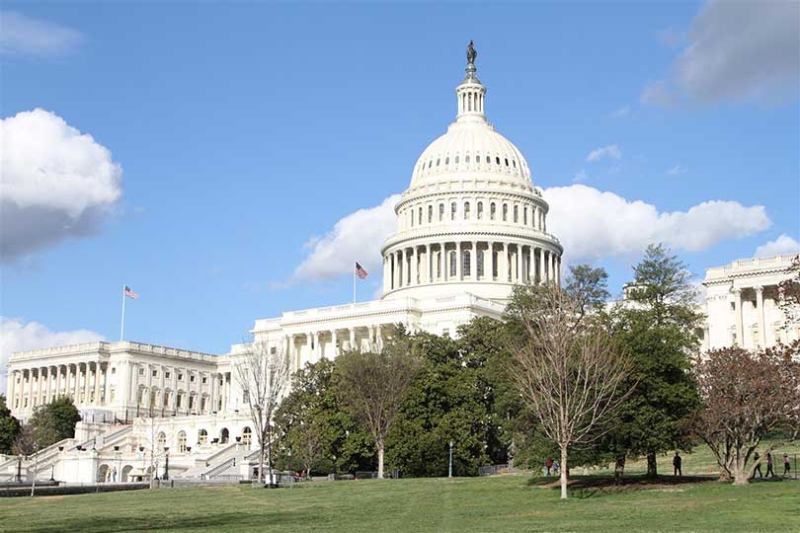By Jennifer Whitlock
Field Editor
Continuing to advocate for farm safety net programs, stronger border security and beneficial free trade agreements top the list of Texas Farm Bureau (TFB) national legislative priorities for 2022.
“These issues are important to our members,” TFB National Legislative Director Laramie Adams said. “Even though it may seem like Capitol Hill is a long way from a field in our state, what happens at a federal level eventually comes back home to roost on Texas farms and ranches.”
The TFB state board of directors names priority issues for the upcoming congressional session after organizational policy is set by county delegates from across the state during the winter annual meeting.
Priority issues identified include the 2023 Farm Bill, border security, trade, taxes, ag labor, food supply chain resiliency, rural connectivity, truth-in-labeling, livestock/crop protection, regulatory reform, climate initiatives and transportation.
“Farmers and ranchers are directly affected by each of the priority items,” Adams said. “Issues important at the county level make their way through our policy development process. They are voted on during the annual meeting and the board of directors determine the top priorities for legislative action based on member feedback and organizational policy.”
Farm bill
Although not due to be written until 2023, the farm bill has often been a hotly contested package in Congress. Because the bill covers farm safety net programs, crop insurance rules, rural development, nutritional assistance and more, it is vital to supporting and protecting American farmers and ranchers.
“We saw tumultuous farm bill sessions in 2013 and 2018, and I would expect 2023 to be no different. There will be much congressional debate and folks who don’t understand agriculture seeking to strip much-needed funding from many of the titles aimed at helping agriculture,” Adams said.
Because of those concerns, TFB is laying the groundwork now to be sure Texas farmers’ and ranchers’ concerns are addressed and that an effective safety net is maintained.
Border security
As the surge of illegal immigrants continues to overwhelm law enforcement agencies along the U.S.-Mexico border, securing that region becomes even more urgent, Adams noted.
“We have many farm and ranch families suffering the direct effects of illegal immigration across their lands,” he said. “Families have losses and damages that are not covered by insurance or any federal program, despite the damages occurring because of federal policy. That’s unacceptable.”
Taxes
Continuing to advocate for tax provisions that are important to farms, ranches and small businesses may make the difference between families passing on legacies or being forced to sell to pay the taxes, Adams said.
“We narrowly dodged a bullet when legislators finally agreed to drop a proposal to end stepped-up basis in the ‘Build Back Better’ spending package last year,” he said. “That was a direct result of agricultural and small business organizations like TFB sounding the alarm on the implications for small and family-owned businesses. But there are still some proposals regarding capital gains taxes and other bad tax policy that would have big impacts on farms and ranches. So, this is something we continue to monitor and actively oppose. We are working legislators to ensure those agendas stay off the table.”
Climate
Mitigating climate change is a banner issue of President Joe Biden’s administration, including initiatives of the U.S. Department of Agriculture aimed at encouraging more “climate-smart” farm and ranch practices.
Carbon sequestration markets, greenhouse gas emission-reduction certifications and other “green” industries have surfaced but most are unproven and unregulated.
It’s a complicated issue, which is why Adams noted TFB will closely monitor federal efforts and policy in this area.
Any new regulation, enforcement or programs developed to support climate initiatives should be accessible to farms and ranches of all sizes and not be burdensome to implement or detrimental to operations, according to TFB policy.
“Some of those ideas would be impractical, wildly expensive to implement and harmful to some farms and ranches, so we plan to stay engaged as these policies are developed,” Adams said.
Member involvement
TFB staff will work to implement the legislative priorities at the national level, but Adams noted members’ stories and testimonials are essential.
“It’s important that farmers and ranchers remain engaged with their lawmakers,” he said. “They want to hear from you. They want to know how you’ll be affected by certain bills and policies.”
A National Affairs Awards Trip is also planned for April to allow county Farm Bureau leaders and members to meet with lawmakers.
VoterVoice, a feature available at texasfarmbureau.org/advocacy/voter-voice, makes it easy to stay in touch with elected officials.
Sign up for alerts, find legislation, look up officials and submit comments on issues when applicable.

